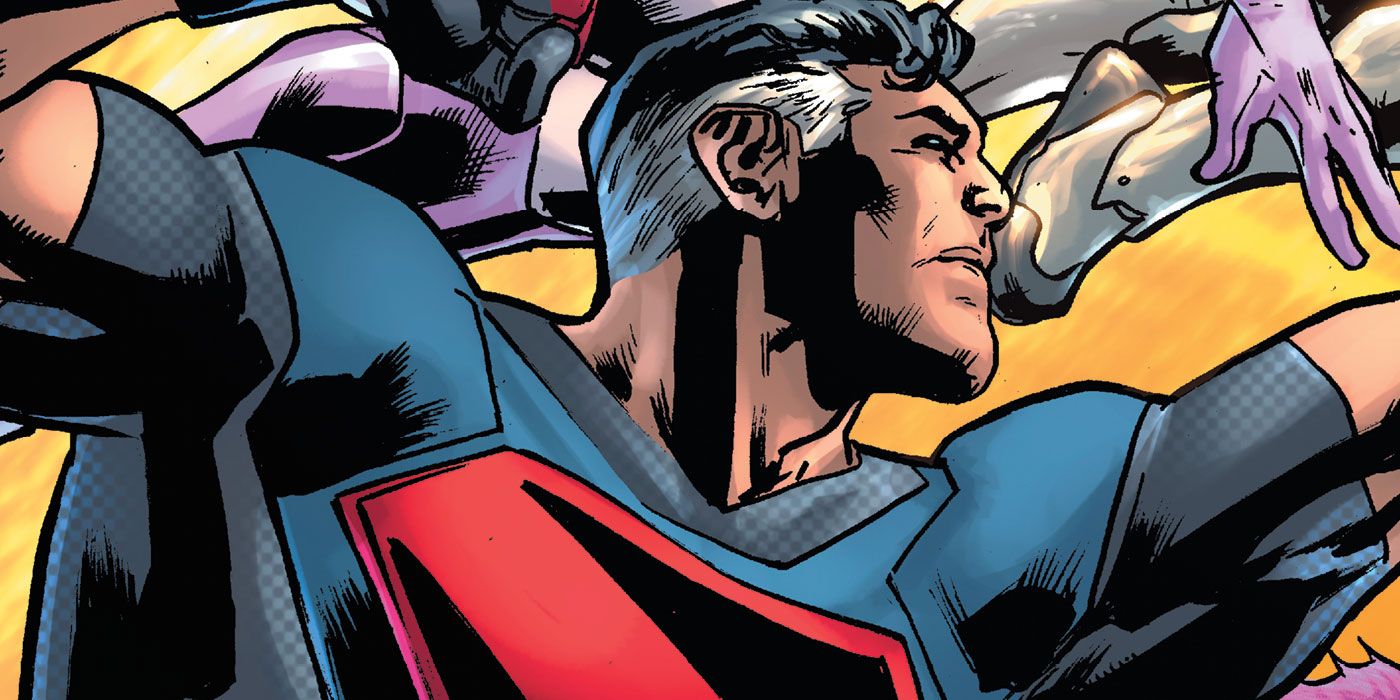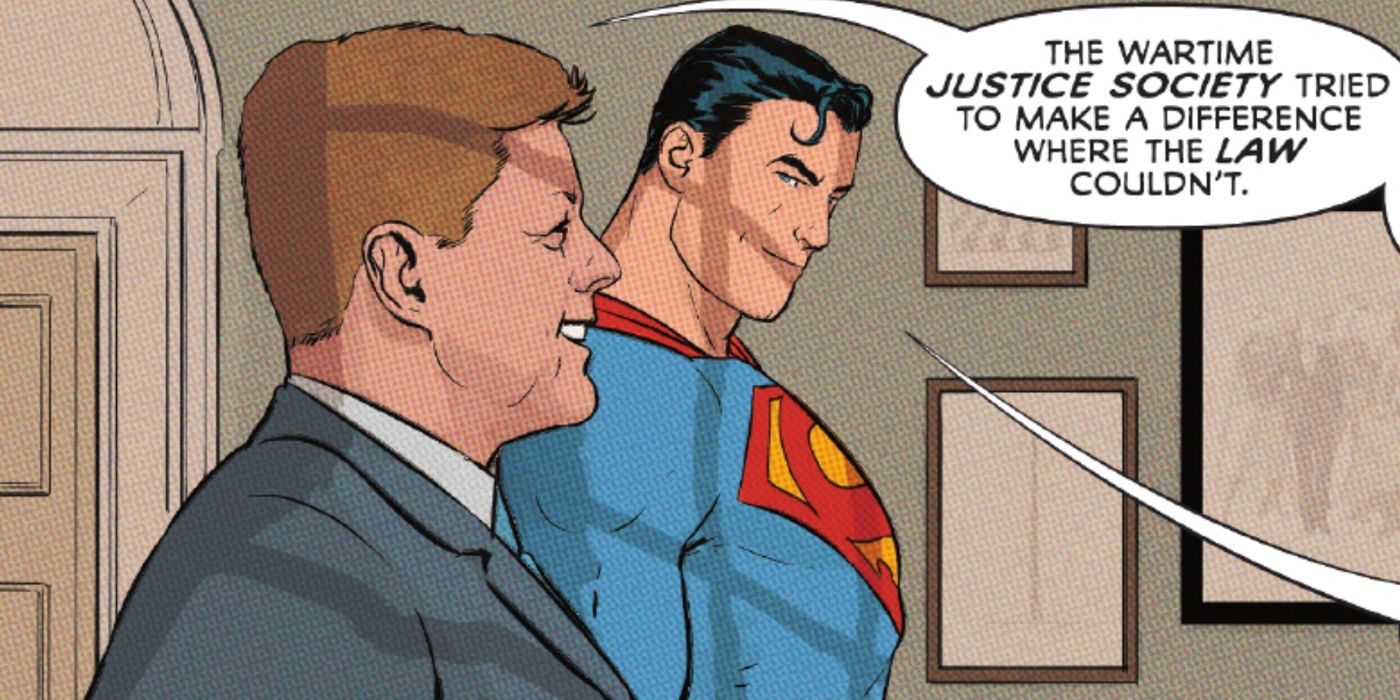WARNING: The following contains spoilers for Superman and the Authority #1, by Grant Morrison, Mikel Janín, Jordie Bellaire and Steve Wands, on sale now.
The Wildstorm Universe has always been a shared superhero world that hewed more closely to the real world, including much of its history and more grounded sensibilities, than the DC Universe. And with some of WildStorm's most famous heroes about to join Superman in the miniseries Superman and the Authority, this iteration of the Man of Tomorrow has his worldview irrevocably shaken and informed by a real historical tragedy, the assassination of President of the United States John F. Kennedy.
As revealed in Superman and the Authority #1, by Grant Morrison, Mikel Janín, Jordie Bellaire and Steve Wands, Superman's failure to save the head of state from his untimely end launches the story's overarching premise.
Superman and the Authority begins with an idyllic prologue during 1963, where it's clear that Superman's presence has inspired humanity and the United States in ways that mirrored and enhanced the optimistic, accelerate the growth of America during that era. Instead of the Space Race striving to land a man on the Moon by the end of the decade, the Kennedy Administration now seeks to put to astronauts on the surface of Mars instead. And while Kennedy himself acknowledges that the Justice Society of America was a major part of America's growth in the 20th century, he hopes that Superman personally spearheads even bigger, more ambitious aspirations for the country and humanity as the living embodiment of truth, justice and the American Way.
It's clear that Superman and Kennedy are friendly acquaintances, with similar hopes and dreams for the country, as the two men quickly get along in a private conversation before Kennedy's fateful presidential trip to Dallas. Though Superman offers to provide personal protection to the President and his wife on their stop in Texas, Kennedy declines and insists that the superhero truly live up to his moniker as the Man of Tomorrow. Securing a promise from Superman that he will step in to end war on Earth and catapult humanity's destiny across the cosmos, Kennedy also reminds the Last Son of Krypton the importance of unfettered human ingenuity to build its own fate. As Superman observes astronauts on the Moon, Kennedy is assassinated much as he was in the real world, shot in the head as his motorcade drives through Dallas.
While Superman is faster than a speeding bullet, the fact he was unable to race over 200,000 miles in time to save the President is a personal failure that haunts him decades later when Superman and the Authority's main narrative truly begins. It is implied that Superman's superhero career has been driven by his unfulfilled promise to JFK in the years that followed the President's untimely death, with Kal-El convinced his mission is on the brink of total collapse. Superman similarly hints this drive wore down both himself and the Justice League, necessitating the formation of a more proactive superhero team that will become this world's Authority.
While it's clear that Superman is a little more war-weary and willing to go to more extreme lengths to keep the peace, this presumably authoritarian drive is one borne of a promise to an idealistic President and not something more dark and personal. Superman retains his clear-eyed hopes and dreams for humanity but is visibly tired of pulling his punches, no longer intent to rest overconfidently but to finish the fight in memory of a presidential ally long gone.


